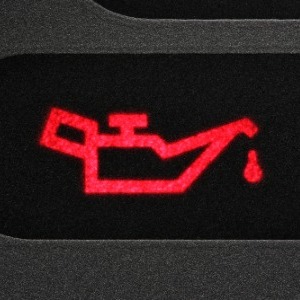Common Causes For Low Oil Pressure

Low oil pressure is one of the most common issues that can occur in vehicles causing significant ongoing problems. As such, dealing with these issues should be considered a priority. In this post, we’ll look at some of the most common causes for low oil pressure, and why you should keep on top of it. Let’s take a look.
Obstructed Oil Filter
A common reason for low oil pressure is that the oil filter has become obstructed or blocked. The obstruction could be caused by oil sludging and clogging internal parts, or it may be a foreign object that has found its way into the system. In either case, it’s important to ensure oil can pass through the filter seamlessly to avoid lubricant starvation.
Low Oil Level
Although this may be obvious, people often overlook this cause. The single most common reason for low oil pressure is simply because it needs topping up. A little-known fact is that engine oil consumption increases as an engine ages, so be sure to carry out periodic oil level checks. If the oil level is dropping quickly, the problem could be caused by a leak. Look for spots of engine oil that may be dripping underneath your car. It is advised to check your lubricating oil level every six weeks, If it’s running low, top it back up with the correct oil (see your vehicles owners manual or use Exol’s engine oil checker here).
Dirty or Worn Oil Pump
As with most internal workings of a vehicle, the oil pump can pick up debris over time. Although this is not usually a problem at first, the issue is cumulative, eventually you could find that your oil pump is too dirty and is causing low oil pressure. Oil Pumps can also become worn over time, rendering them unable to provide oil to the system. A worn oil pump will need to be replaced.
Worn Engine Bearings
Older engines with high mileage are more likely to encounter problems with low oil pressure due to engine wear. Engine wear will always occur over time regardless of how well it’s looked after. Look out for symptoms of having a worn engine, these can include:
- Knocking sounds coming from the engine
- Loss of oil pressure
- Transmission noise and worn belts.
- Silver shavings in the oil
- Copper sheen in the oil
Weak Oil Pressure Release Valve
A pressure relief valve that has become stuck open will allow too much oil to bleed off, resulting in a lack of oil pressure. A valve that has become jammed closed will have excessive oil pressure, eventually causing the oil galley plugs to blow out. When this occurs, a large amount of oil is lost and the pressure drops.
Oil Viscosity
Finally, adding the wrong type of engine oil (oil where the viscosity is too low or too high). Low viscosity oil has less resistance to flow, which can cause an oil gauge or sensor to read low oil pressure. High oil viscosity has a higher resistance, which can cause a lack of lubrication in the system, which also leads to low oil pressure. Make sure to always use the right motor oil in your engine, otherwise you may cause damage to your vehicle.
Summary
Engine oil is the lifeblood of any vehicle. Be sure to check your oil level periodically to avoid causing damage to your motor, making sure that you’re using the correct oil. Here at Exol, we provide all types of oil for all applications, from consumer level to industrial scaled needs. Contact our friendly team today for more assistance either by emailing hello@exol-lubricants.com or by calling +44(0)121 568 6800.

